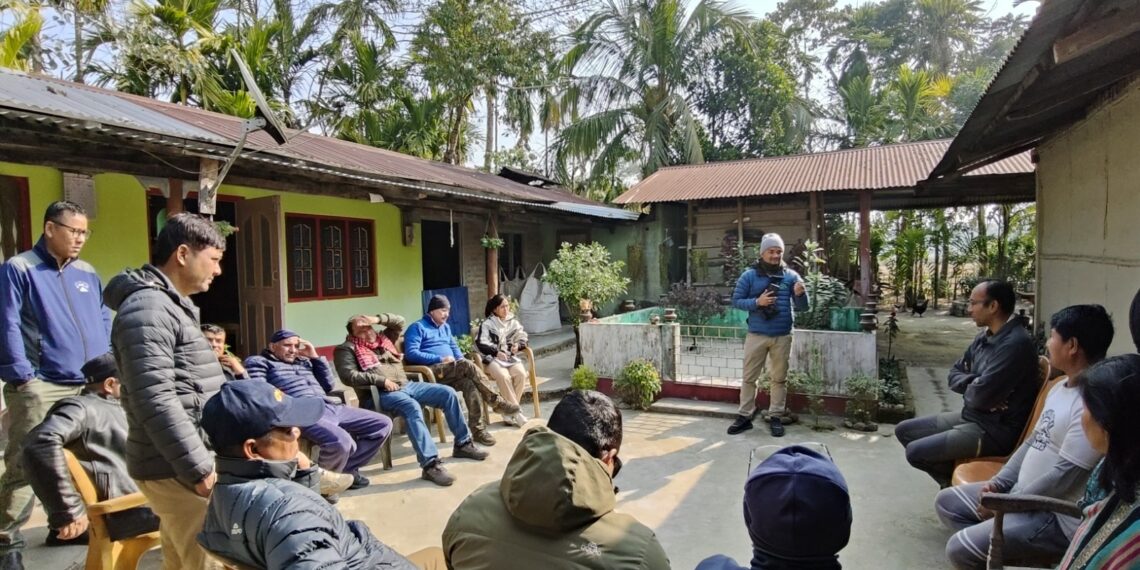GUWAHATI: A team of protected area managers and community leaders from Nepal visited Assam’s Kaziranga and Manas Landscapes to explore the conservation practices and community involvement, recently.
Supported by the Zoological Society of London-Nepal in collaboration with Aaranyak, the visit aimed to expose the delegation to best practices related to protected area management, community-livelihood work, and human-wildlife conflict mitigation.
In the Kaziranga Landscape, the team engaged in interactive sessions with senior forest officials and conservation experts, gaining insights into the diverse ecosystem and conservation efforts of the renowned Kaziranga National Park and Tiger Reserve.
Dr Sonali Ghosh, Field Director of Kaziranga Tiger Reserve, provided a comprehensive overview of the protected area and its management activities, accompanied by documentaries showcasing the park’s resources.
Additionally, the team immersed themselves in the local culture through a village trek, interacting with the Karbi indigenous community and indulging in ethnic cuisine.
Additionally, the visitors explored community-led initiatives such as the PIRBI store, an indigenous business venture promoting naturally grown produce and handmade items by forest-dependent communities.
Jeep safaris offered a firsthand experience of Kaziranga’s rich biodiversity, further enhancing the team’s understanding of conservation efforts.
In the Manas Landscape, the team delved into discussions with forest officials, NGOs, and local stakeholders at the Manas Conservation and Outreach Centre (MCOC) of Aaranyak.
Retired IFS officer, Hiranya Kr. Sarma, highlighted the importance of community involvement in conservation efforts, while representatives from Aaranyak gave them a glimpse of the ongoing activities and capacity-building initiatives.
The visit also included jeep safaris to witness the biodiversity of Manas National Park and its connection with Royal National Park in Bhutan.
Additionally, a village walk provided insights into indigenous Bodo tribe communities and their involvement in community-owned homestays and self-help groups supported by Aaranyak.
The visit concluded with a reflection on the enriching experience, coordinated by Dr. M Firoz Ahmed, Binita Baruwati of Aaranyak, and Dinesh Neupane and Sunjeep Pun of Zoological Society of London-Nepal.















